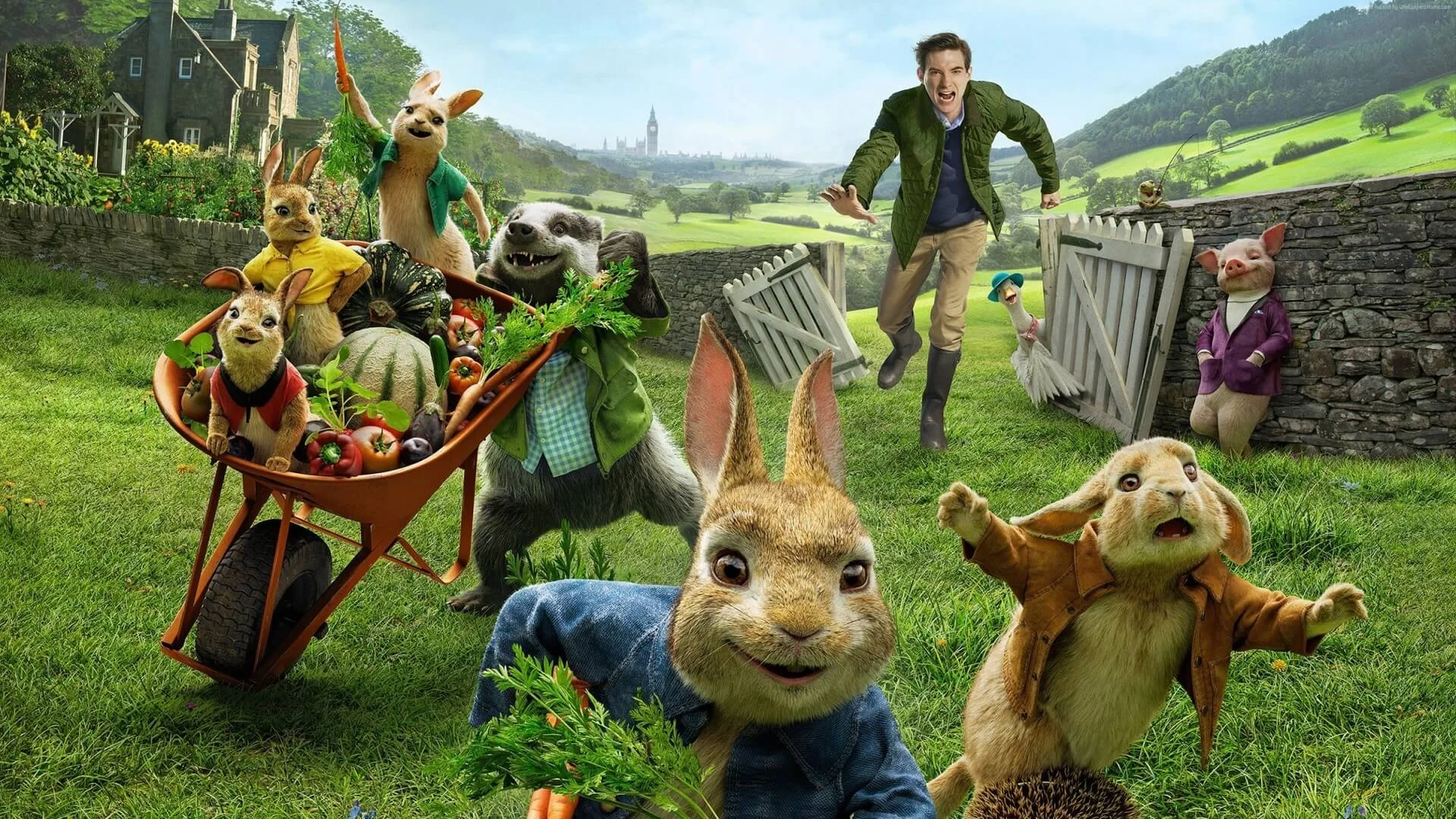Film: Peter Rabbit
By Tom Browne
Beatrix Potter’s much-loved character is dragged kicking and screaming into the multiplexes, and it’s not a pretty sight.
Cast your mind back to mid-2014, when all the talk was of the upcoming Paddington movie. None of it was positive. There was much concern that Michael Bond’s beloved character was about to get a full 21st-century update: those charming illustrations rendered in the digital murk of CGI, our furry friend forced into a baseball cap and onto a skateboard, all topped off with a jarring dubstep soundtrack. A last-minute replacement for the voice of Paddington (Ben Whishaw in for Colin Firth) hardly added to our sense of confidence.
And yet Paddington, when it finally arrived, turned out to be a triumph: easily the best family film of 2014, whose reputation has only been enhanced by the release of its even-better sequel last year (never mind the complete absence of recognition at the awards season – another example of institutional blindness concerning British films that aren’t about World War II).
I mention all this because the parallels with Peter Rabbit are uncanny. Already we’ve had Beatrix Potter’s biographer claiming that the author herself would have hated this adaptation (maybe true, but not necessarily relevant) and a weird row about how the film makes light of a character’s blackberry allergy (director Will Gluck probably felt this was reasonably inoffensive territory, but be careful where you tread these days). And, just like Paddington, there have been concerns about the voice: James Corden is, after all, not everyone’s idea of a cuddly national treasure.
Given all the noises off, the stage is set for Peter Rabbit to burst forth from the screen and prove all the naysayers wrong. Unfortunately, despite a lot of hustle and bustle, the final product proves to be mainly stick and very little carrot.
Whereas Paddington writer/director Paul King cut his comedy teeth on the BBC’s marvellous The Mighty Boosh, Will Gluck’s pedigree is far less certain – the Mila Kunis rom-com Friends With Benefits and 2014’s remake of Annie are unlikely to be troubling any critics’ lists in the future. A majority of the jokes fail to land, and those that do are milked to the point of diminishing returns. Much of the time we’re in Home Alone territory, and I’m surprised that a recurring slapstick gag involving electric shocks hasn’t provoked more comment – in terms of imitative behaviour, it’s a lot less obscure than a blackberry allergy.
Even worse, the titular mammal singularly fails to charm the audience. Instead of fun and mischievous, this Peter is sarky and annoying. One can only imagine Corden was aiming for the wry, ironic tone of Wes Anderson’s Fantastic Mr Fox, but he’s turned his character into the kind of tedious smart Alec one would gladly see encrusted in pastry (a threat that’s repeatedly made but sadly never delivered upon).
Without decent writing or characterisation, the animation seldom gets the chance to shine, although there’s clearly some impressive work on display. In addition, we’re saddled with all the clumsy updates that Paddington managed to avoid, including action sequences soundtracked by Basement Jaxx, The Proclaimers and Vampire Weekend, and dialogue that would be more at home on a university campus – at one point, Peter even reassures his siblings that “We’re family, this is a safe space.” Good grief!
The only respite comes with the human leads. Domhnall Gleeson reliably chews the scenery as Thomas McGregor, a city-based toy salesman who finds himself in possession of the very country house and garden that provides such a happy hunting ground for Peter and his family, while Rose Byrne provides solid support as Bea, McGregor’s wildlife-loving neighbour. There are also a couple of short animated sequences – using Potter’s original drawings – that sketch in Peter’s family background, and manage to be more charming than anything else in the film.
If this provides a brief glimpse of the movie Peter Rabbit could have been, it should also stand as a cautionary tale for any studio that gets its hands on heritage material: if you can’t succeed in being radical, you’re far better off playing safe.
Published by Saga, March 2019.
